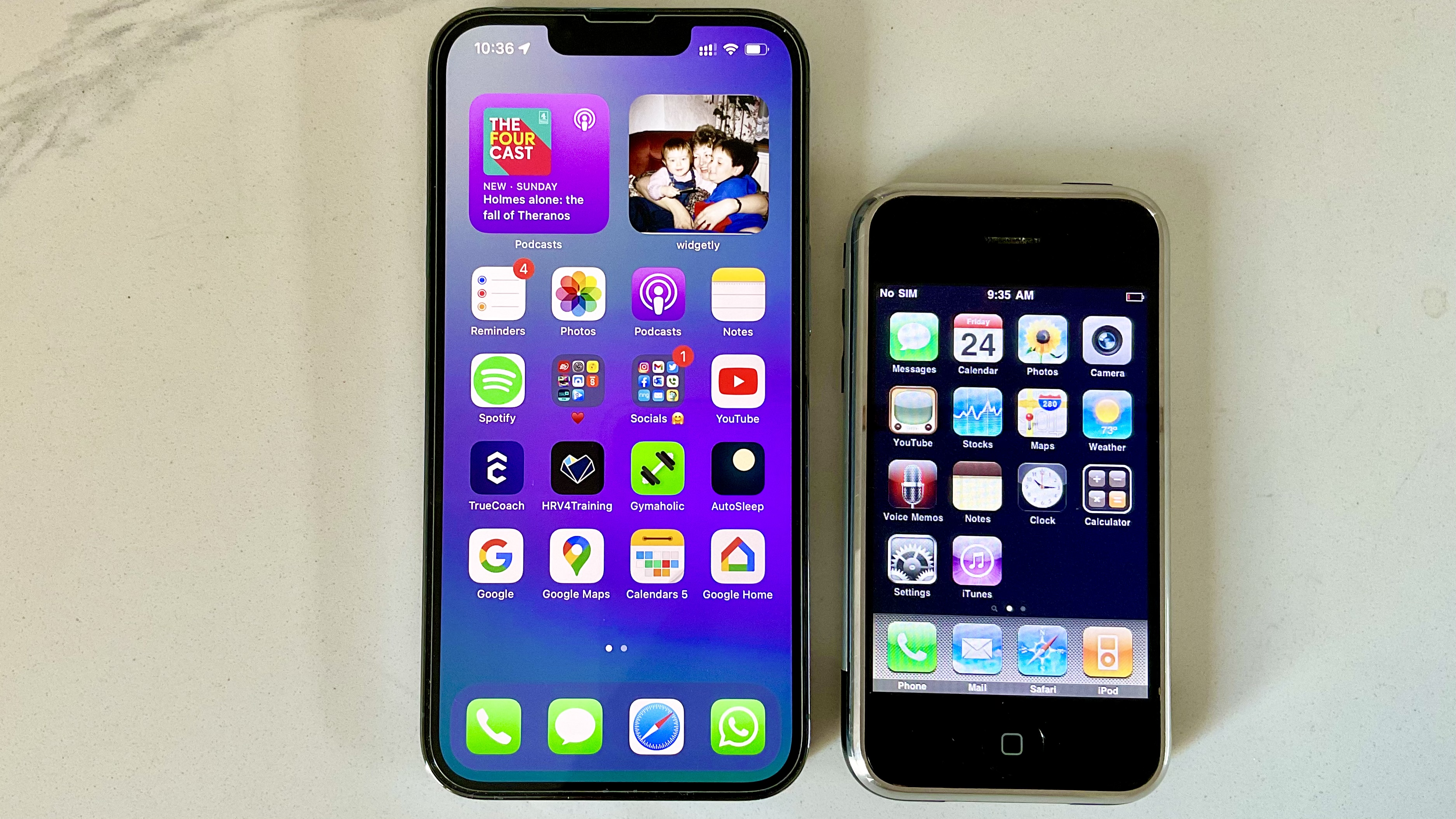The early days, when the iPhone was new, were special. 15 years ago, Steve Jobs and Apple engineered what could best be described as a hype beast of a product launch.
First, Jobs unveiled the iPhone at Macworld in January 2007, but it would be months before the iPhone would officially launch. Whether by design or necessity, that delay turned out to be the best possible way to launch what would become a technological and cultural touchstone.
Anticipation for availability details and the official launch date built and built until Apple announced and, naturally, the tech media reported it.
Hype central turned out to be the one-year-old Apple Flagship Store on Fifth Ave. While I remember launch day, I don’t recall attending or even walking by. However, reports from the time described a line that literally ran down the front steps of the store and snaked around the block. There was media, and third-party companies trying to ride this cresting wave of excitement. It was pandemonium.
The old-fashioned way
Apple generated all this without the benefit of social media. Facebook was just a couple of years old and mostly only college students used it. Twitter hadn’t caught on with the general public. There was no Instagram.
This was all built on traditional media hype and word of mouth.
Apple leaned into it, hard. There were store employees acting as cheerleaders, leading people in chants of “When I say ‘I,’ you say, ‘iPhone.’”
The scenes of people waiting all night (sometimes for days) outside of Apple Stores were repeated around the country.
Why?
Apple and Jobs had spent the last eight years building brand devotion that some might argue surpassed the concurrent quality of their products. I don’t see it that way. There’s never been a company, tech or otherwise, that managed to pair exquisite design and industry-leading quality and utility with a brand affinity that built into something approaching a cult.
As one guy told The New York Times in 2007 while he waited online outside a Chicago Apple Store for the first iPhone, “If Apple made sliced bread, yeah, I’d buy it.”
The devotion was born out of products like the iMac, iBook, and iPod. Steve Jobs was the glue that bound it all together. It was hard to find an Apple fanatic who wasn’t as devoted to Jobs as he was to his iPod.

Devotion and repetition
After that first launch, I became a regular at the yearly launch events, which eventually moved from the Summer to September or October. For a while, the hype machine continued unabated. At the iPhone 6s launch, I remember meeting one of the first eager iPhone recipients, a young woman who traveled from Lithuania to get a Rose-colored device she still couldn’t buy in her home country.
Still, by then the tenor of the events had shifted. Yes, there were still lines, but they were often filled with professional line waiters who would buy the phones for other people and those who were buying for resale. Pre-orders, home delivery, and at-home activation all became commonplace – and easier than waiting outside an Apple store.
The lines were starting to shrink, but Apple’s team of hypers was growing and getting bolder.
After the Lithuanian woman brought her new, still-boxed phone outside, they demanded she unbox it for the crowd. She complied and seemed excited, but I thought it was a little forced.
Never the same
There are the occasional blips back to past excitement, like when Apple introduced the iPhone X in 2017. Its radical new look and notch created a buzz not seen since the Jobs days. I thought the line at the Fifth Avenue store was among the biggest I’d seen in years. I had the phone early and when I waved it in front of a few future iPhone X owners, they visibly swooned.
Obviously, the pandemic vaporized that phenomenon for a few years, but even before then, I’m not sure the lines of iPhone customers were as big as the groups of professional Team Apple cheerleaders who created a gauntlet for new iPhone owners to run through.
15 years on, Apple’s iPhone is still an excellent smartphone, clearly a leader in its field, but the hype bubble Apple and Steve Jobs nurtured and grew is visibly deflated. We still love the devices and buy them by the millions, but that cultural moment is gone.
I look forward to the next product that can generate that kind of thrill.
from TechRadar - All the latest technology news https://ift.tt/2ax1b5n
No comments:
Post a Comment